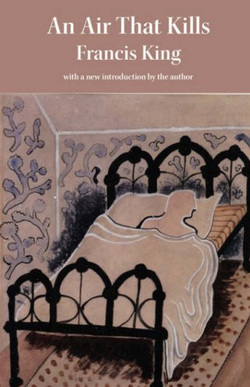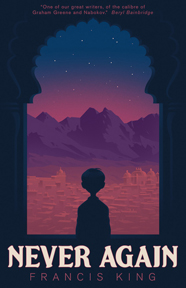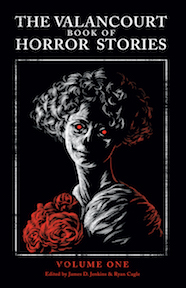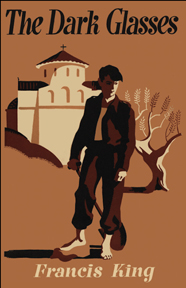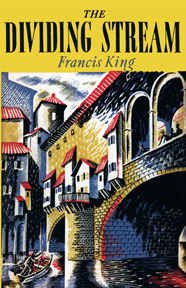|
BOOK DETAILS
Trade paper ISBN-13: 978-1934555279 List Price: $17.99 U.S. Pages: 212 Published: 2008 |
An Air that Kills (1948)
Francis King 60th anniversary edition with a new introduction by the Author Book Description
Mark Langworthy has just returned home after a stint as a colonial administrator in India. Once a promising writer, his dreams and idealism have been extinguished, and he returns stricken with malaria and fatigued in both body and spirit. When he meets his nephew, Paul, an ingenuous orphan of eighteen and an aspiring writer, Mark sees in the boy a chance for redemption. Over the course of an English summer they form a close though sometimes difficult friendship, but when Paul begins a love affair with one of his uncle's former acquaintances, Anne, things begin to unravel. A series of circumstances threatens the bond they have developed, and when Anne suggests that Mark's interest in Paul may not be what it seems, both Mark and Paul will have to come to terms with their feelings and discover the true nature of love and friendship. Published in 1948, An Air That Kills is the third of Francis King's more than thirty novels. Widely acclaimed as one of the finest novelists of his generation, King displays in this early work all the imaginative energy and ardour of a young writer dealing with a theme which he clearly felt profoundly. This 60th anniversary edition includes a new introduction by the author. |
reviews
"The story of this book is remarkable. Francis King is a writer who has been around for a long time. He was born in 1923 and published his first book, To the Dark Tower, when he was 23 and an undergraduate at Oxford. His 40-plus works include poems, stories and autobiography. He is still going, still read, and respectfully reviewed." -- The Times (London), March 7, 2008
"The story of this book is remarkable. Francis King is a writer who has been around for a long time. He was born in 1923 and published his first book, To the Dark Tower, when he was 23 and an undergraduate at Oxford. His 40-plus works include poems, stories and autobiography. He is still going, still read, and respectfully reviewed." -- The Times (London), March 7, 2008
"Francis King's text is fascinating, and today's reader remains surprised by the young novelist's extraordinary mastery. This remarkably fresh book well deserved being republished." -- Inverses, August 2008
"The story of this book is remarkable. Francis King is a writer who has been around for a long time. He was born in 1923 and published his first book, To the Dark Tower, when he was 23 and an undergraduate at Oxford. His 40-plus works include poems, stories and autobiography. He is still going, still read, and respectfully reviewed." -- The Times (London), March 7, 2008
"Francis King's text is fascinating, and today's reader remains surprised by the young novelist's extraordinary mastery. This remarkably fresh book well deserved being republished." -- Inverses, August 2008
ALSO AVAILABLE THROUGH ONLINE RETAILERS
MORE TITLES BY THIS AUTHOR
AUTHOR BIOGRAPHY
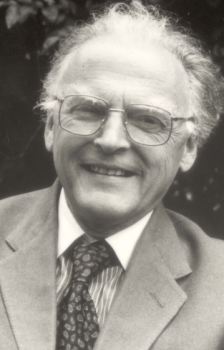
Francis King was born in Switzerland in 1923 and spent the first eight years of his life in India before being sent back to England to a boarding school. A bright student, he earned a Classics scholarship to Balliol College, Oxford, but later changed to English literature, and published his first novel, To the Dark Tower (1946) while still an undergraduate. This novel, and his next two, Never Again (1947) (an autobiographical novel based on King’s childhood) and An Air That Kills (1948), were published by Home and Van Thal, which then went bankrupt, but not before King had established himself as a promising young novelist.
Beginning in 1949, King worked for the British Council and travelled extensively, including to Italy, Greece, and Japan, all of which would provide settings for his novels. His next book, The Dividing Stream (1951), set in Florence, won the Somerset Maugham Award and cemented King’s status as one of the bright young literary stars of his generation. During the 1950s and 60s, King published a string of excellent works, including The Dark Glasses (1954), The Man on the Rock (1957), The Widow (1957), The Custom House (1961), and The Waves Behind the Boat (1965).
In 1966, King resigned from the British Council to devote himself to writing full-time and supplemented his income by writing book and theatre reviews and working as a literary adviser to the publishing house of Weidenfeld & Nicolson.
He continued to write prolifically, and notable highlights include the gay-themed novel A Domestic Animal (1970), which drew a threat of a libel action, The Action (1978), which narrowly missed the Booker shortlist, and Act of Darkness (1983), which, unlike many of King’s books—which were always well-received critically—was relatively successful commercially.
King went on writing until his death in 2011, making the Booker longlist with The Nick of Time (2003) and publishing a revised 60th anniversary edition of An Air That Kills with Valancourt Books in 2008; his final novel, Cold Snap, appeared in 2010.
Beginning in 1949, King worked for the British Council and travelled extensively, including to Italy, Greece, and Japan, all of which would provide settings for his novels. His next book, The Dividing Stream (1951), set in Florence, won the Somerset Maugham Award and cemented King’s status as one of the bright young literary stars of his generation. During the 1950s and 60s, King published a string of excellent works, including The Dark Glasses (1954), The Man on the Rock (1957), The Widow (1957), The Custom House (1961), and The Waves Behind the Boat (1965).
In 1966, King resigned from the British Council to devote himself to writing full-time and supplemented his income by writing book and theatre reviews and working as a literary adviser to the publishing house of Weidenfeld & Nicolson.
He continued to write prolifically, and notable highlights include the gay-themed novel A Domestic Animal (1970), which drew a threat of a libel action, The Action (1978), which narrowly missed the Booker shortlist, and Act of Darkness (1983), which, unlike many of King’s books—which were always well-received critically—was relatively successful commercially.
King went on writing until his death in 2011, making the Booker longlist with The Nick of Time (2003) and publishing a revised 60th anniversary edition of An Air That Kills with Valancourt Books in 2008; his final novel, Cold Snap, appeared in 2010.

